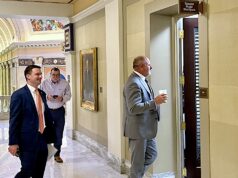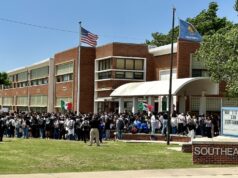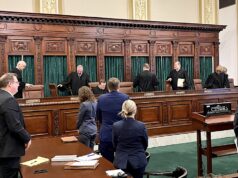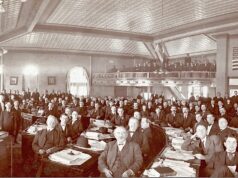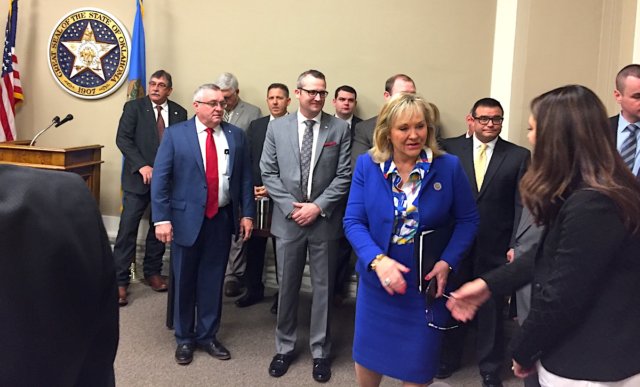
Oklahoma’s statewide-elected officials sat at Gov. Mary Fallin’s conference table this morning, listening as the state’s deputy budget director ran through a list of statistics and revenue estimates. Christmas carols wafted into the room from elsewhere in the Capitol.
Above the politicians, on a slightly blurry projection screen, phrases summarized Oklahoma’s fiscal situation:
- Market indicators do not suggest imminent recession
- Oklahoma is underperforming the national average for job growth but closing the gap
- Oklahoma economy is slowly recovering
- Dwindling tax base means Oklahoma cannot grow out of the State revenue crisis in the near future.
Moments later, the state’s deputy budget director provided an unusual clarification about Fiscal Year 2019 estimates to Fallin, Lt. Gov. Todd Lamb, State Treasurer Ken Miller, Attorney General Mike Hunter, State Auditor and Inspector Gary Jones, State Superintendent of Education Joy Hofmeister and Secretary of Agriculture Jim Reese.
“Since the Fiscal Year 2018 budget is yet to be finalized and since there were some changes in appropriations, this comparison is, I guess, what we would call kind of a moving target,” Shelly Paulk said.
Put another way, state leaders were not offered a true estimate of the budget hole facing lawmakers for the 2018 regular session because the 2017 Legislature has not finalized a balanced FY 2018 budget.
“Certainly an unusual year for the State of Oklahoma,” Fallin said in concluding the meeting.
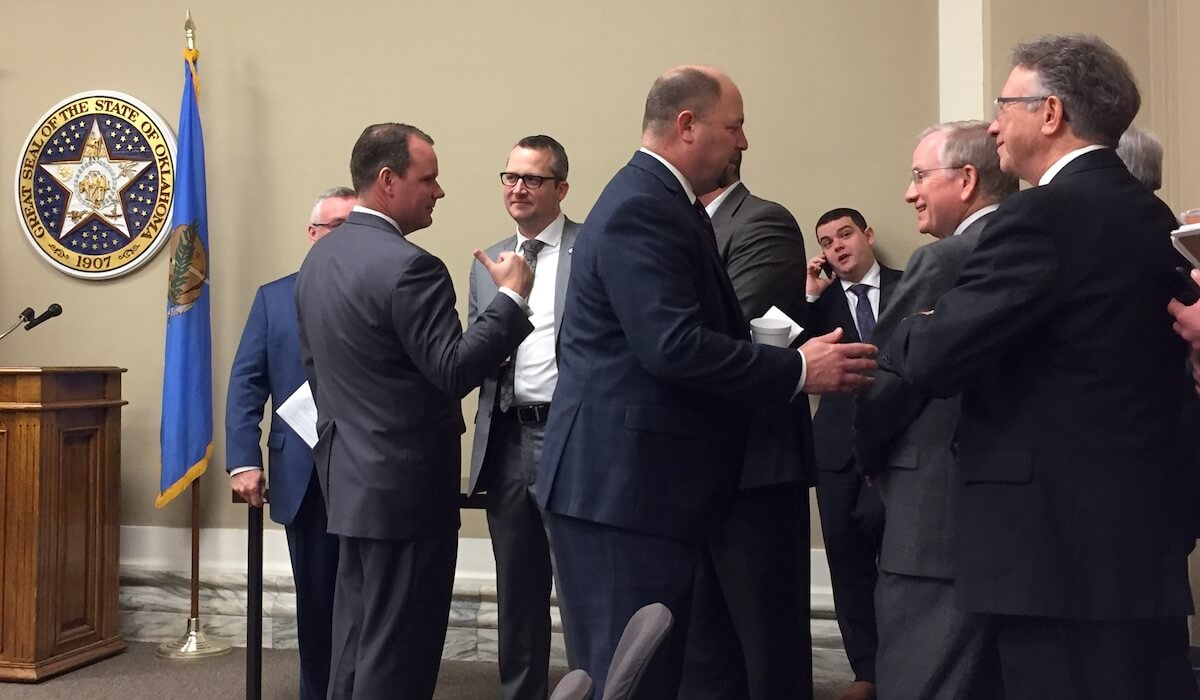
Fallin: Public wants politicians to ‘fix problems’
After adjourning the meeting, Fallin provided media with a summary of the 2017 legislative year and answered questions. She described bipartisan meetings with legislative leaders that recently featured state business leaders pitching a grand package of revenue measures.
“The question will be, ‘What can they pass out of the House?’ And that will be up to the speaker and his leadership team,” Fallin said. “It’s going to take both parties.”
But in a 2018 election year with candidate filing scheduled for April in the middle of the legislative session, conventional wisdom would make it seem less likely that lawmakers would vote for a tax package.
Fallin, however, suggested that Oklahoma voters are more concerned with fixing the state budget.
“When I was a member in Congress, I was actually there when the markets crashed,” Fallin said. “I’ve told this to our legislative members so many times that they’re probably sick of hearing me say this — I haven’t lost an election in 27 years. I voted for a lot of things I thought were super good, and I voted for a lot of things that didn’t sit very well with me.
“But in the end when you explain to the public what you’re trying to do — you’re trying to fix a budget hole, you’re trying to put us on a stable path, you’re trying to do things we need to do like give the teachers a pay raise — the public accepts that.”
Fallin said polling indicates voters’ main desire is to see the state budget fixed, followed closely by a desire for a teacher pay raise. She discussed how she originally voted against the controversial 2009 federal Troubled Asset Repayment Program but then switched and supported it, all while gearing up to run for governor. TARP ultimately stabilized the national economy and provided a return on investment for the money lent.
“I tell that story to the Legislature in that I’ve never lost an election because I fixed problems, and I think the people of Oklahoma elect us to fix problems at the state Capitol,” Fallin said. “They expect us to get the very best information possible, make the very best decision we can, and then to fix problems.
“I think if we don’t fix problems, I think they are at risk of their elections.”
Board meets amid special session
Lawmakers are in their second special session of the year, appropriating just more than $44 million for the Oklahoma Health Care Authority and the Oklahoma Department of Human Services. But Sen. Kim David (R-Porter) said Tuesday that those two agencies — plus the Oklahoma Department of Mental Health and Substance Abuse Services — will only have enough money to operate through April.
David’s statement means that, in addition to the budget hole facing lawmakers for Fiscal Year 2019, the Legislature will need to finish its Fiscal Year 2018 budget through June 30.
The Oklahoma Legislature is scheduled to convene for its regular 2018 legislative session Feb. 5, but Fallin said her current goal is for special session to recess over Christmas and return in mid-January with a revenue agreement.










